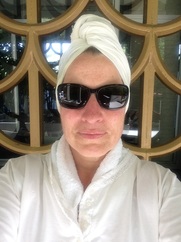 post-shirodhara treatment
post-shirodhara treatment One came this spring when I recognized myself as a caregiver. I'd been accompanying Marcy to most of her major medical appointments since the very first meeting with an oncologist, had been there for her first chemo treatment, had flown to Philadelphia to help her enroll in a clinical trial; I'd received near-daily emails from her, many asking for help of one sort or another; I'd immersed myself in conversations about death and learning death care and bereavement practices in part to serve her and our shared community. I cared, desperately. And I gave a lot. But I'd never thought of myself as a "caregiver".
Then one day at a Death Cafe event, Jessica Thomas asked if I would help recruit participants for her doctoral research with caregivers. "Yes," I said - "but I'd like to enroll. I'm a caregiver." With that simple recognition (and a bit of paperwork) I entered into her study, a four-week practice of mindful photography.
Each Monday I set aside time to take a photo after meditating; later in the day I looked at the photo and wrote a short journal entry. I discussed the experience with Jessica in a brief weekly phone interview, and a longer interview at the completion of the four weeks. These reflections helped me realize how the practice had added more spaciousness into my busy, often stressful days, a moment of beauty and relaxation that was "just for me." I knew I was unlikely to have taken those moments for myself if I hadn't committed to the practice for the study. One of the most useful aspects was in actually identifying myself as a caregiver in need of supportive practices.
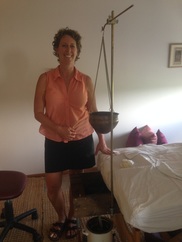 Lisa Bordner
Lisa Bordner "I’d like to offer you a Shirodhara session, my gift" she wrote in one of the most welcome emails I've ever received. "I’ve just had a sense of how much is up for you lately, and thought it might be a sweet reprieve. And I know how much you put out there in the community and in the world, and would love to give back as you do for so many."
Thus I found myself on a massage table positioned under a copper cauldron that slowly and steadily bathed my third eye with sesame oil over the course of 40 minutes. It's an ancient Aryuvedic technique that Lisa describes as "one of the sweetest, simplest ways of nourishing the entire nervous system so the mind can quiet and body drop down and experience a sense of deep relaxation." It worked.
I went gently home and laid in a recliner in the shade in our backyard and entered the space of preparation for Marcy's death that had eluded me in the prior weeks. The next day, after working out and my weekly meditation sitting, I went to Marcy's house. I didn't come home until 5am the next morning. That day, the day after that sweet sesame oil had opened a door inside my heart, was Marcy's last day alive. The rest of the week was bathed in grace and love and broken-hearted sorrow.
If you're interested in Jessica's study, here's her call for participants.
To contact Lisa Bordner about her somatic practices: [email protected].


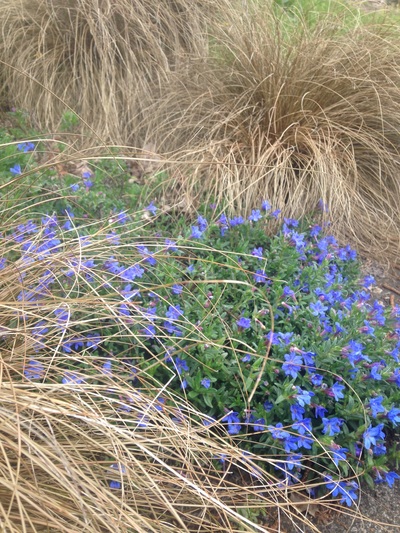

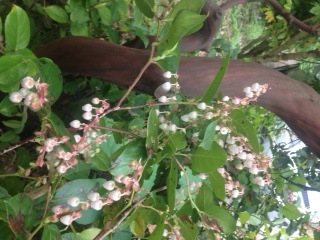
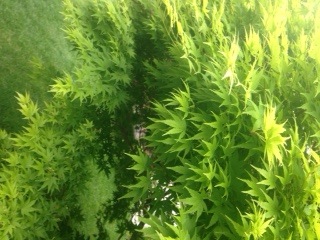
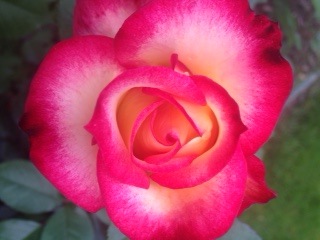
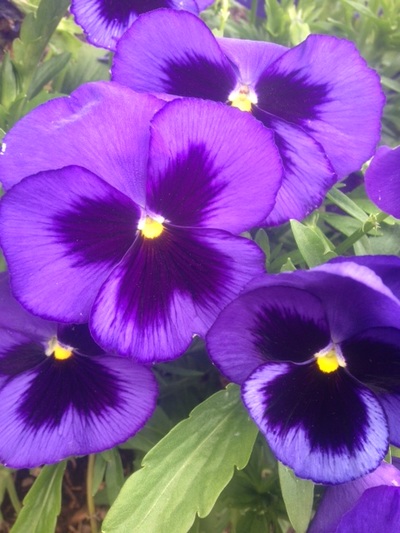
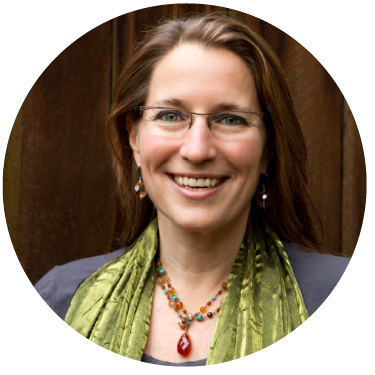
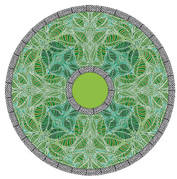
 RSS Feed
RSS Feed